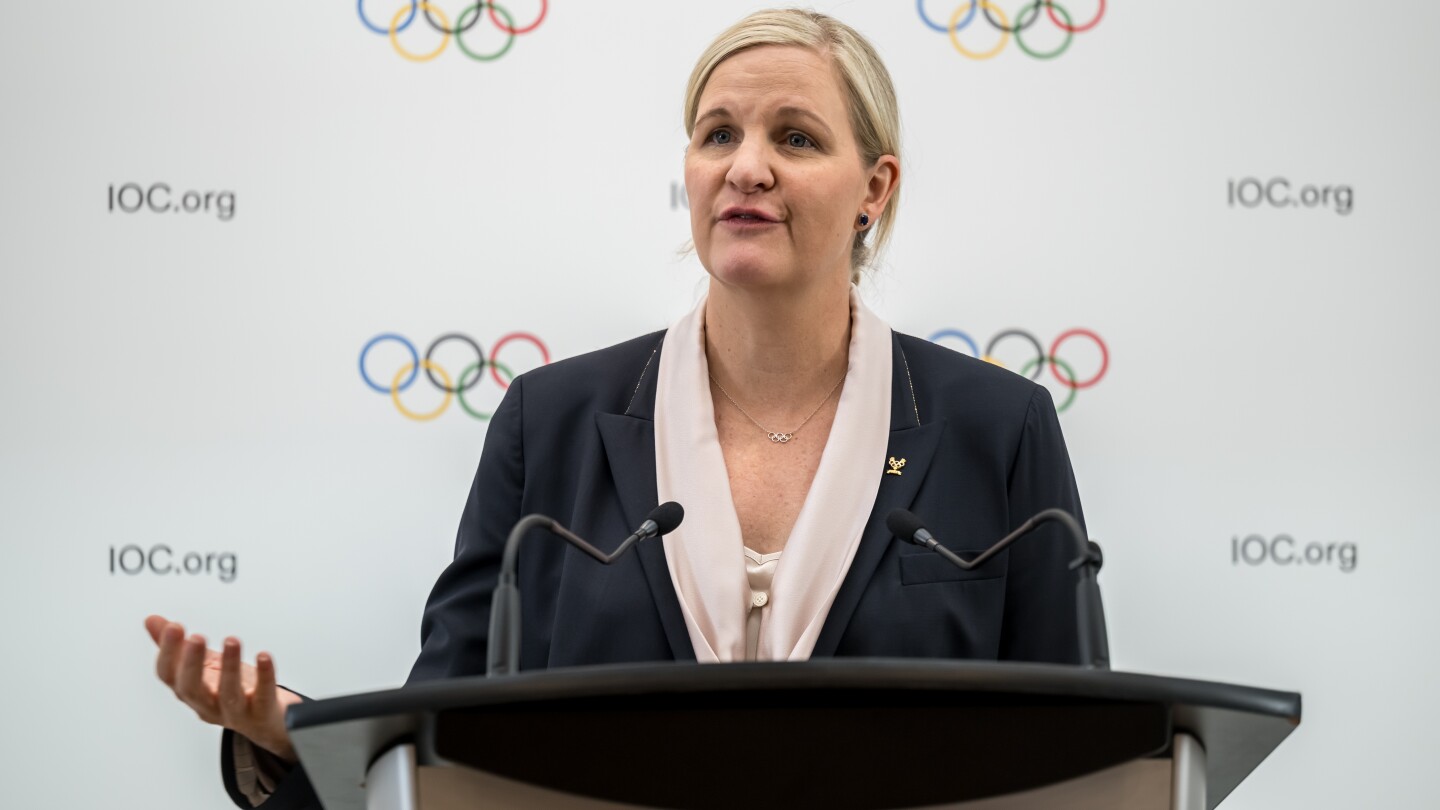Olympic History Made: Kirsty Coventry Shatters Glass Ceiling as IOC's First Female President
Sports
2025-03-20 15:25:37Content

In a historic moment for the International Olympic Committee (IOC), Kirsty Coventry has been elected to succeed Thomas Bach, marking a significant transition of leadership after Bach's remarkable 12-year tenure. The Zimbabwean Olympic swimming champion brings a fresh perspective and dynamic energy to the prestigious role, becoming the first African to lead the global sporting organization.
Coventry's election represents more than just a change in leadership; it symbolizes a new era for the IOC, with her background as an accomplished athlete and her commitment to Olympic values promising to bring innovative approaches to the committee's future direction. Her rise to this prominent position highlights the growing recognition of diverse leadership within international sports governance.
Thomas Bach's departure concludes an influential period that saw the IOC navigate complex global challenges, including the COVID-19 pandemic's impact on the Olympic Games and ongoing geopolitical tensions. Coventry now steps into this critical role, tasked with continuing Bach's legacy while charting her own course for the organization's continued global relevance and impact.
Olympic Leadership Transformation: Kirsty Coventry Ushers in a New Era of International Sports Governance
In a groundbreaking moment for international sports administration, the Olympic movement witnesses a significant leadership transition that promises to reshape the future of global athletic representation and strategic direction. The changing of the guard represents more than just a routine leadership shift, but a potential paradigm shift in how international sporting organizations approach governance, inclusivity, and global athletic development.A Pivotal Moment in Olympic Leadership Dynamics
The Changing of the Guard: Understanding the Significance
The transition from Thomas Bach's twelve-year tenure to Kirsty Coventry's leadership marks a profound moment in Olympic history. Coventry, a distinguished Olympic swimmer from Zimbabwe, brings a unique perspective to the International Olympic Committee (IOC) leadership that transcends traditional administrative boundaries. Her background as an accomplished athlete provides her with an intimate understanding of the challenges and aspirations of competitive sports professionals worldwide. Her appointment represents more than a mere leadership change; it symbolizes a generational shift in sports governance. Unlike her predecessor, Coventry embodies a more dynamic, athlete-centric approach to international sports management. Her lived experiences as an Olympic medalist offer her unprecedented insights into the intricate ecosystem of competitive athletics.Kirsty Coventry: A Trailblazing Leadership Profile
Coventry's journey from Olympic champion to international sports administrator is nothing short of remarkable. Her swimming career, which saw her winning multiple medals and representing Zimbabwe on the global stage, provides her with a unique lens through which she can reimagine Olympic leadership. Her transition from athlete to administrator represents a growing trend of empowering former competitors to shape the future of international sports. Her background is particularly significant in an era where athlete welfare, representation, and holistic development are becoming increasingly central to sports governance. Coventry understands firsthand the physical, mental, and emotional challenges athletes face, positioning her to implement more compassionate and comprehensive policies.Navigating the Future: Strategic Implications of Leadership Transition
The leadership transition comes at a critical juncture for the International Olympic Committee. With global sports facing unprecedented challenges—ranging from geopolitical tensions to technological disruptions—Coventry's leadership represents a potential catalyst for innovative approaches to international athletic cooperation. Her appointment signals a potential shift towards more inclusive, transparent, and athlete-focused governance. The IOC under her guidance might prioritize issues such as gender equality, athlete mental health, sustainable sporting practices, and leveraging technology to enhance athletic performance and audience engagement.Global Perspectives and Transformative Potential
Coventry's leadership is particularly significant given her African heritage. Her rise to such a prominent international position challenges traditional power structures in global sports administration. She represents a new generation of leaders who bring diverse perspectives, challenging long-standing institutional norms and potentially reimagining how international sporting bodies operate. Her background suggests a leadership style that might be more collaborative, empathetic, and responsive to the evolving needs of athletes from diverse global contexts. This approach could herald a more nuanced, culturally sensitive approach to international sports governance.Challenges and Opportunities Ahead
While Coventry's appointment is promising, she inherits a complex landscape. The IOC faces ongoing challenges, including maintaining relevance in a rapidly changing global sports ecosystem, addressing historical governance issues, and ensuring the Olympic movement remains a beacon of international cooperation and athletic excellence. Her ability to navigate these challenges will likely define her legacy. The sports world watches with anticipation, hoping her unique perspective and athletic background will translate into transformative leadership that can address the multifaceted challenges facing international sports.RELATED NEWS
Sports

Breaking: Signing Day Sports Unveils Comprehensive 2024 Annual Performance Insights
2025-04-11 20:30:00
Sports

Derby Dreams: Insider Reveals Top Picks for 2025 Kentucky Race with Proven Track Record
2025-05-03 13:06:00
Sports

Beyond the Buzzer: LJ Cryer's Personal Quest in Houston's March Madness Saga
2025-04-06 22:54:20





